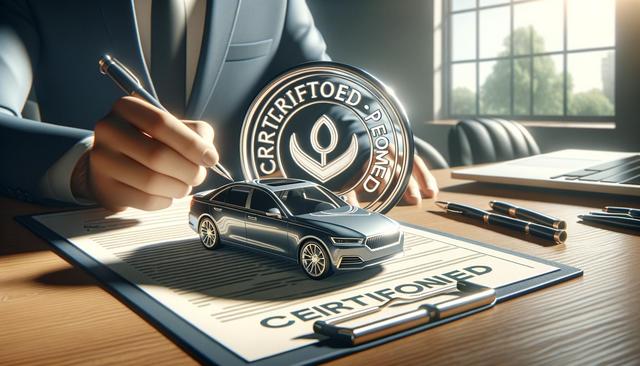
Certified Pre-Owned Cars: A Smart Path to Reliable Vehicle Ownership
What is a Certified Pre-Owned Car?
A Certified Pre-Owned (CPO) car is a used vehicle that has undergone a thorough inspection and meets specific manufacturer or dealership standards. Unlike standard used cars, CPO vehicles are typically newer models with lower mileage and a clean history. They are refurbished to meet strict guidelines and are often backed by extended warranties that provide additional coverage. This makes them a highly attractive option for buyers who want the reassurance of a dependable vehicle without paying the full price of a new one.
The certification process varies depending on the manufacturer, but most include a multi-point inspection that covers everything from engine performance to tire condition. Vehicles that pass these tests are then certified and may come with extra perks like roadside assistance, vehicle history reports, and sometimes even special financing offers. This added layer of quality control is what sets CPO cars apart from traditional used vehicles.
Benefits of Buying a Certified Pre-Owned Vehicle
There are several reasons why more drivers are choosing certified pre-owned vehicles over brand-new or standard used cars. The primary advantage is value. CPO cars offer many of the benefits of a new car—like reliability and warranty protection—at a more accessible price point. Because the bulk of a car’s depreciation happens in the first few years, buying a CPO model lets you avoid the steepest drop in value.
Some key benefits include:
- Lower purchase price compared to new vehicles
- Extended warranty coverage
- Comprehensive inspection and reconditioning
- Roadside assistance and other extras
- Access to vehicle history reports
These features make CPO cars a practical option for buyers who want peace of mind without stretching their budget. They are especially appealing to first-time car buyers, families, and anyone who prioritizes reliability.
Understanding the Certification Process
The certification process is crucial to the value proposition of a CPO vehicle. It usually involves a rigorous inspection checklist that covers hundreds of components and systems. For example, a typical inspection might examine:
- Brake performance
- Transmission functionality
- Suspension and steering systems
- Battery health and electrical systems
- Interior and exterior condition
Only vehicles that meet the program’s standards are certified. They may also undergo necessary repairs or replacements to bring them up to certification quality. Some programs are manufacturer-backed, meaning the automaker stands behind the certification, while others are dealership-backed, offering varying levels of trust and warranty support.
It’s a good idea to ask for documentation of the inspection and any work that was done. This transparency helps reinforce the value of the certification and gives buyers confidence in their purchase.
Things to Consider Before Buying a CPO Car
While certified pre-owned vehicles offer many advantages, there are also a few important factors to keep in mind before making a purchase. Not all certification programs are created equal, so it’s vital to understand what is included in the CPO package you’re considering. Look at the warranty length, what systems or parts are covered, and whether there are any deductibles or coverage limitations.
Other factors to consider include:
- The vehicle’s mileage and age restrictions
- Whether the certification is manufacturer- or dealer-backed
- Availability of maintenance records
- Transferability of the warranty
- Resale value based on brand reputation and certification program
It’s also wise to compare the price of a CPO vehicle to similar used and new models. While CPO cars may cost more than non-certified used cars, the extra cost might be justified by the warranty and added assurances. Be sure to review all documents thoroughly and, if possible, get the vehicle inspected by a trusted third-party mechanic before finalizing the deal.
Where to Shop and What to Look For
Certified pre-owned vehicles are typically available at franchised dealerships that sell new cars. These dealerships usually participate in manufacturer-backed CPO programs and have access to tools and parts needed for proper reconditioning. However, some independent dealers also offer certified programs, so it’s important to verify the legitimacy and coverage of their certification process.
When shopping, prioritize transparency and documentation. Ask for:
- A copy of the inspection checklist
- Details of any repairs or replacements made
- Proof of warranty coverage and expiration
- Vehicle history report
It’s also a good idea to test drive the vehicle and ensure it meets your expectations in terms of comfort, performance, and features. Take your time and shop around to compare different models and certification programs. This approach will help you make an informed decision that suits your needs and budget.